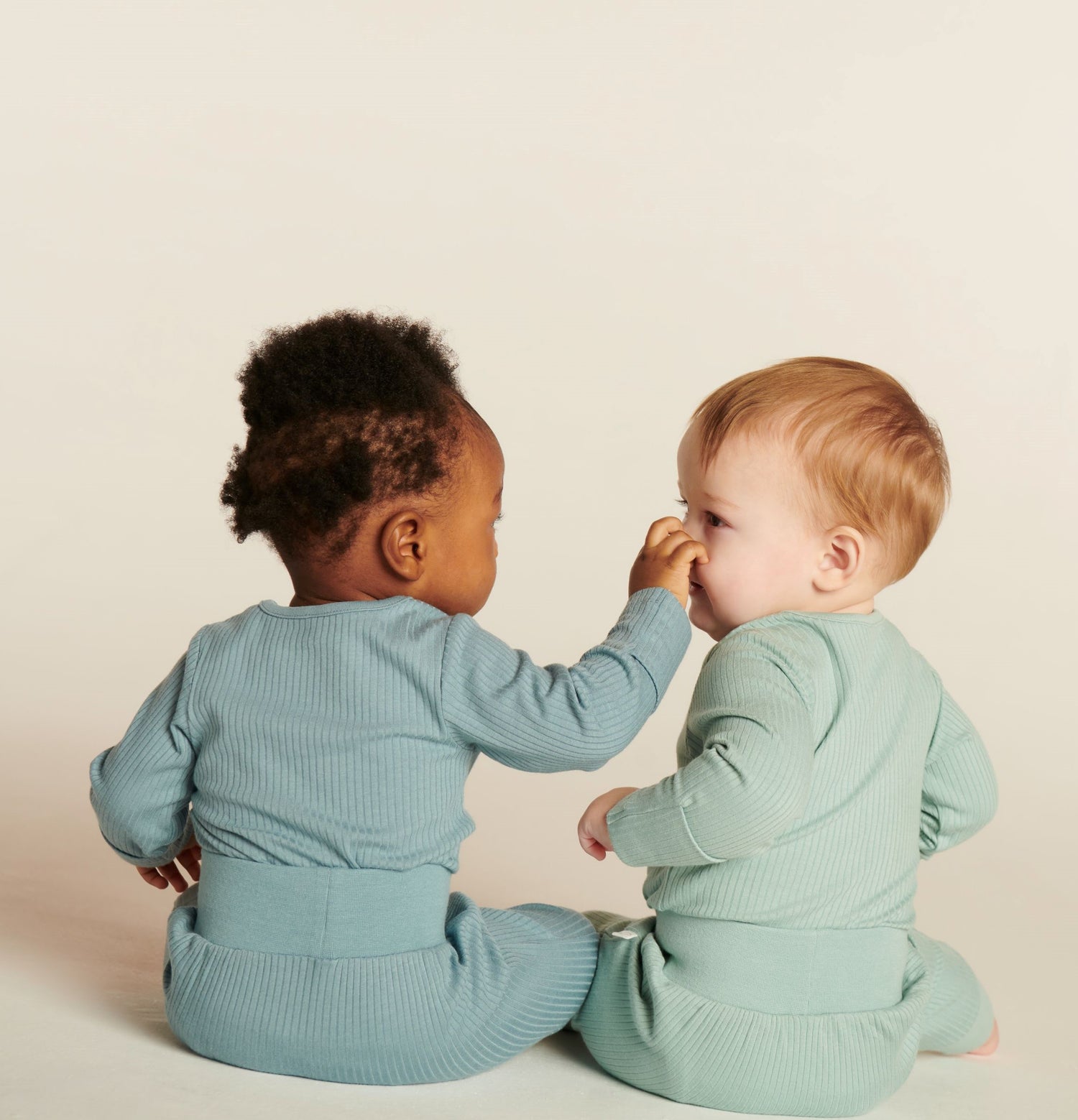
Green Laundry Hacks: Can 30-Degree Wash Clean Baby Clothes?
Share

In the quest for a more sustainable lifestyle, every small choice matters. From minimising waste to reducing our carbon footprint, there's a growing awareness of the environmental impact of our daily routines. Laundry, especially when it comes to washing baby clothes, plays a significant role in how our choices affect the environment and many laundry detergent brands now suggest washing at 30 degrees.
However, does washing at 30 degrees clean baby clothes as effectively as higher temperatures? In this post, we look into how effective washing at 30 degrees is when it comes to keeping kids' clothes clean and how washing at colder temperatures is better for the environment.
Is washing at 30 degrees more eco-friendly?
While at-home washing machines have revolutionised the chore of washing laundry since they were introduced in the 1950s, the use of washing machines has come at a price. With every load of washing, CO2 is generated from heating water to the desired temperature, with washing machines emitting an estimated 62 million tonnes of CO2-eq greenhouse gases each year.
However, research, by leading laundry detergent provider Ariel, has shown that when combining modern detergents and energy-efficient washing machines, the environmental impact of washing machines can be reduced. By choosing to wash your clothes at 30 degrees you can achieve clean results and reduce carbon emissions by 30%. The benefits of washing at lower temperatures do not stop there:
Washing clothes at 30 degrees can also:
- Save money on your energy bills
- Keep clothes looking more vibrant
- Helping clothes to last longer by avoiding shrinkage at hot temperatures.
Does washing at 30 degrees work on baby clothes?

Although washing at lower temperatures is better for the environment, is washing at 30 degrees appropriate for baby clothes? Although baby clothes are small, typical life with a baby generates a lot of laundry, from spilled milk to nappy explosions, baby’s clothes endure some tough stains.
Modern laundry detergent formulas are great at removing stains with claims from Persil stating that even tough stains like mud and pasta can be removed at 30 degrees.
Putting stained clothes through a cold pre-soak or hygiene rinse can also help to tackle tough stains before washing them, allowing you to use a lower temperature setting and still obtain clean results.
However, when it comes to stains that include bacteria such as faeces, a common stain when raising a baby, it is agreed that hotter washes are needed.
Choose an eco-friendly laundry detergent
Choosing the right laundry detergent can help to reduce the environmental impact of washing clothes at home. Here are some great eco-conscious laundry brands:
- Smol - Get your laundry detergent sent to your home in plastic-free packaging that is cruelty-free with Leaping Bunny approval.
- Ecover - Ecover uses biodegradable ingredients and avoids common irritants. Its packaging uses plant-based materials and recycled plastic.
- Clothes Doctor - This clothing care company offers eco-wash detergents in plastic-free bottles, with detergents aimed at specific needs. Their baby detergent is free from irritants and has a higher alkaline formula to tackle tough stains.
Balancing cleanliness and sustainability
The concept of using lower temperatures for washing baby clothes aligns with the ethos of sustainable living. It minimises energy consumption and reduces greenhouse gas emissions. However, maintaining a balance between cleanliness and eco-friendliness is paramount. Hence, occasional higher-temperature washes for heavily soiled items or bacteria-prone garments might be necessary for peace of mind.
Eco-conscious cleaning: Tips and tricks
- Choose eco-friendly detergents: Opt for detergents specifically labelled as eco-friendly or suitable for lower temperatures. These formulations ensure effective cleaning without compromising the environment.
- Pre-treat stains: For stubborn stains on baby clothes, pre-treating them before washing is a game-changer. Natural stain removers like baking soda or white vinegar work wonders without the need for harsh chemicals.
- Maximise full loads: To conserve water and energy, ensure your washing machine runs at full capacity. Combining multiple baby clothing items in one load not only saves resources but also maintains the machine's efficiency.
- Air dry whenever possible: Embrace the air-drying method for baby clothes. Not only does this preserve fabric integrity, but it's also energy-efficient and eliminates the need for energy-hungry tumble dryers.

